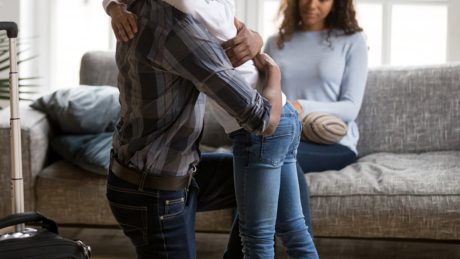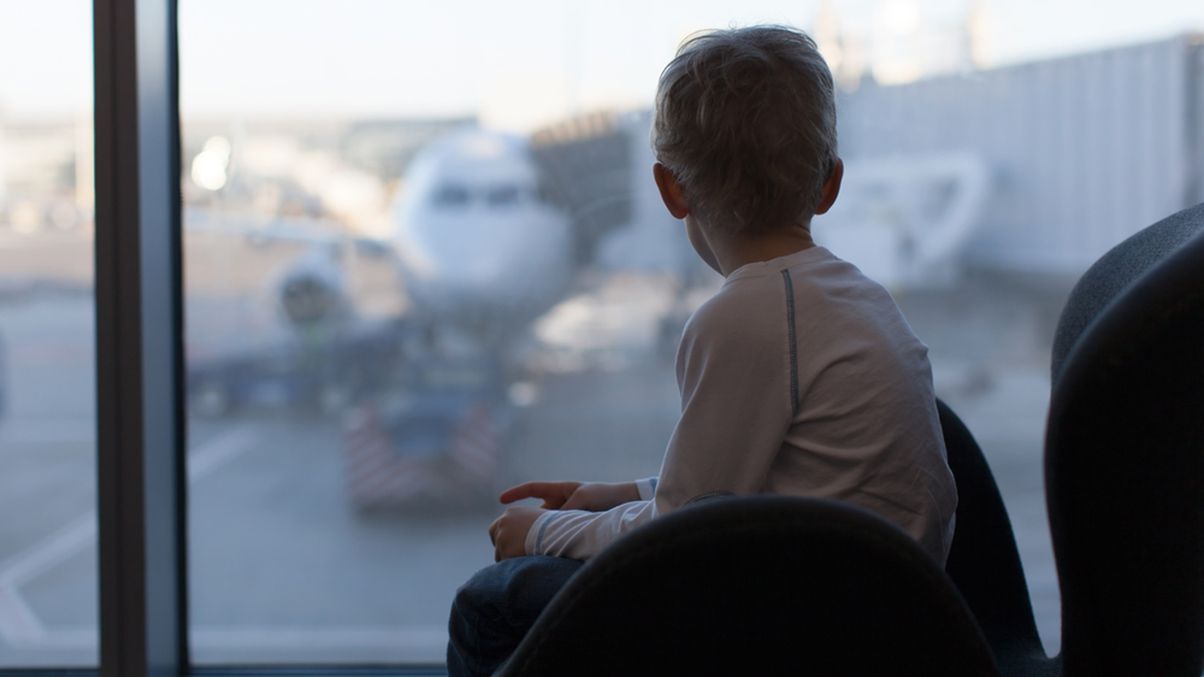As England is in the midst of its second lockdown, we explore why separated parents should start to make their childcare plans for Christmas as soon as possible and what the lockdown might mean for separated parents based in England or travelling to England from overseas to spend time with their children. Partner Sam Longworth and Associate Ellie Hampson-Jones sets out some steps separated parents can take to avoid costly disputes and ill feeling over the festive period.
Christmas is a notoriously stressful time of year for any family. It can be even more difficult to navigate where parents are separated and are trying to create the best possible experience for children who will be spending time between each parent’s home. Throw into the mix the extra ingredients of a global pandemic on a never seen before scale and, quite clearly, the recipe is less Nigella and more Kitchen Nightmares.
Contact arrangements this autumn are already showing signs of being more of a contentious issue for parents than they were last year. This may be as an impact of the Pandemic. In September 2020, the Court and Family’s Social Worker Service received 4,262 new private law cases. That is up 540 cases on the same period in 2019, and during a period where lockdown restrictions had eased off to some extent.
How are Christmas arrangements agreed between separated parents in usual times?
Separated parents are always encouraged to agree the arrangements for their children between themselves. The court recognises that in the first instance, parents with parental responsibility (ie formal decision-making rights in relation to a child) are best placed to decide what is best for their children.
If discussions take place, and you understand an agreement to have been reached, it can often be worth putting these arrangements in writing so that the plans are clear. An email exchange is absolutely fine here – this step is to ensure there are no crossed wires. Many separated parents gravitate towards a shared calendar in place (there are great online options available, or a paper version if you are both technophobes) and make a clear plan for when your child finishes school, and how they will spend their time until they go back to school.
Christmas is an incredibly special (and precious) time, not just for children but also for parents. It is important that this is recognised and that a fair approach is adopted to both parents in this respect. The special days of Christmas (Christmas Eve, Christmas Day, and Boxing Day) are often therefore shared between the parents. Some families will agree that Christmas Day and Boxing Day are spent with one parent one year and the other the next. Depending on how close you live to the other parent, it may also be possible to share the special day with perhaps one parent spending Christmas Eve until lunchtime on Christmas Day and the other parent spending time with the child from lunchtime on Christmas Day to the end of Boxing Day. If one parent spends Christmas Day with the child, it is not unusual for the other parent to spend New Year’s Eve/Day with them. The overarching priority is to ensure that each parent spends quality time with the child.
Where there is a dispute as to how Christmas will be spent, there may already be a court order in place setting out arrangements. What does the pandemic mean for these plans?
If there is already a court order in place setting out how the Christmas holidays should be shared, the guidance from the Family Court is: despite the national pandemic, even if the letter of the order can’t be followed, the spirit of it should be.
Children are allowed to move between homes regardless of lockdown rules. This is an express exception. That is not to say that a child must move. If parents cannot agree to vary a court order, one parent may remain sufficiently concerned that it is not safe for a child to move between homes. If this happens and a resolution is required with the assistance of the court, that parent will be scrutinised as to whether or not they have acted reasonably and sensibly in the light of the official advice. There is a risk that a court will order time to be made up and the court will look to that parent to see how they are putting in place arrangements for indirect contact (ie Skype/FaceTime/Zoom/WhatsApp, etc) to ensure that the child still has sufficient opportunity to interact with the other parent.
It is clear, however, that whatever the age of the child, video contact is no real alternative to time spent in person with a child, especially during the holiday period.
We can’t agree plans for Christmas – what should I do?
So what can be done if you had tried to agree arrangements and there is no sign of plans being reached consensually?
First, you may want to consider whether mediation can help bridge the gap. Mediation is not for every couple, but it’s important to explore it. Why? Well, because first and foremost, you can’t bring an application to the court unless you’ve explored it as an option (and it is anticipated that the court will give short shrift to those who have not, unless they fall into an exemption category). The President’s guidance has made clear that alternative forms of dispute resolution should be encouraged given the pressures on the court that existed even before the pandemic. These have since been exacerbated by staff shortages and the government’s requirement to work from home where possible.
If mediation does not work and you are looking for a more binding solution, consider with your solicitor whether arbitration might be right for you. Arbitration is a privately-funded option whereby you can choose your judge and the date of your arbitration. This may be the best possible option for obtaining an outcome in advance of the Christmas holidays.
If mediation or arbitration are not appropriate, you will need to issue an application at court. There is now a judge sitting at the Central Family Court in London who deals with urgent applications. If the issue requires urgent attention, this will be your fastest route (assuming the court agrees that it is urgent). Usually, a hearing is listed within five to six weeks of an application to resolve child arrangements or specific issues.
However, the pandemic has created a huge backlog of cases, as so many were adjourned at the start of the restrictions in the spring and now need to be relisted. This backlog has only been exacerbated by the increase in court applications overall. With this in mind, there is a risk that your case might not be heard for eight to 12 weeks. If you need to make an application in relation to the Christmas holidays, you need to be making this now.
Who can (currently) form part of your household “bauble” (the Christmas bubble equivalent)?
The term “bubbling” is one we all now know, but may still be slightly confused about. The current government guidance sets out who can be in your “bubble” and the specific exceptions regarding children. Limiting your bubble is encouraged although there are two key “bubbles” concerning children:
- Childcare. There are legally permitted childcare bubbles. Aside from registered childcare, such as nannies, nursery and playgroups, there is also a separate exemption for informal childcare. This is where someone in one household provides informal (ie unpaid and unregistered) childcare to a child aged 13 or under in another household, ie grandparents. This must, however, always be a bubble between the same two households.
- Support. If you’re in a single-adult household living with children (who were under 18 on 12 June 2020) you can form a “support bubble” with another household, as long as they are not part of a support bubble with anyone else. This is in addition to the bubble you have that includes your child’s other parent. If you are not a single adult household, you can still form a support bubble if needed with a single-adult household; again, this is in addition to the one that includes your child’s other parent. For example, if you live with a new partner, you are permitted to form a bubble with the child’s uncle or aunt if they are the sole adult in their own household, as well as continuing contact with the child’s other parent.
If you formed or have continued in a support bubble since 14 September 2020, you cannot then change your support bubble.
At the moment, there is talk of a revised approach to Christmas and the Telegraph has reported on the Government potentially allowing up to three households to form a bubble for the Christmas period. The other potential alternative is that the national lockdown will be revised back to the “tier system”. If it does, then who can be in your ‘bubble’ will depend on what tier you are in. However, children moving for contact will continue to remain an exemption.
It is important to remember that where children do not live in the same household as both of their parents or guardians it is still permitted for them to spend time with each of them and to move between the two households. It is also permitted for there to be contact between birth parents and children in care. Although we cannot predict any further restrictions, currently parents are not, and should not, be deprived of seeing their children unnecessarily.
What if I am a parent coming from overseas and I am supposed to quarantine in England: can I see my children during this time?
Children can still move between homes to see a parent arriving from overseas and a jurisdiction that requires quarantine. However, the parent cannot leave that venue with the child to break the isolation period. If you are doing this, be prepared and organised for a long period of time and the inability to go outside with your children.
What if I want to go back home (which is outside of England/Wales) for Christmas or to take the children away on holiday (outside of England/Wales)?
At present, the guidance is to “stay at home”. Consideration will need to be made whether it will be possible to travel outside of England & Wales once the lockdown restrictions are lifted in early December. If you do wish to return to your “home” state, you will need to consider now whether that is going to be possible (in terms of transportation/flights) and what reassurances you can give to the other parent about returning in the event of further lockdowns both in England and/or in the destination you are travelling to.
Any travel out of the jurisdiction needs to be agreed in advance with the other parent and, if not capable of agreement (even after mediation), decided by the court. It may be that this lack of clarity and the uncertainty as to future restrictions will persuade judges that travel abroad with one parent this Christmas should be the exception.
Our Partner, Sam Longworth as the following advice:
“Christmas always has the potential to be a difficult time of year for separated families and these difficulties are only exacerbated by the current pandemic. This year will require separated families to try and work together and show flexibility as far as possible in what is an ever changing Covid-19 environment.
It is important to plan ahead for Christmas and to discuss the arrangements for the children as far in advance as possible. It would also be advisable to agree contingency plans in the event of currently foreseeable developments. For example, you may be able to agree that, restrictions permitting, the children can travel abroad with one parent during the holiday period but, in the event that the ban on non-essential foreign travel continues over the Christmas break, you have agreed a back-up plan for the arrangements for the children.
If an agreement cannot be reached then it will be better for you both, and for the children, if you mediate the issue rather than instantly issue court proceedings. The court will also require you to have taken this step. However, do bear in mind that any court application will need to be issued imminently to have a chance of being dealt with ahead of the Christmas holidays. Alternatively, it may be better to avoid the delays of the in-court system and arbitrate the issue.”
Covid-19 is impacting individuals and companies around the world in an unprecedented way. We have collected insights here to help you navigate the key legal issues you may be facing at this time.
You can find further information regarding our expertise, experience and team on our Divorce and Family pages.
If you require assistance from our team, please contact us or alternatively request a call back from one of our lawyers by submitting this form.
Subscribe – In order to receive our news straight to your inbox, subscribe here. Our newsletters are sent no more than once a month.








